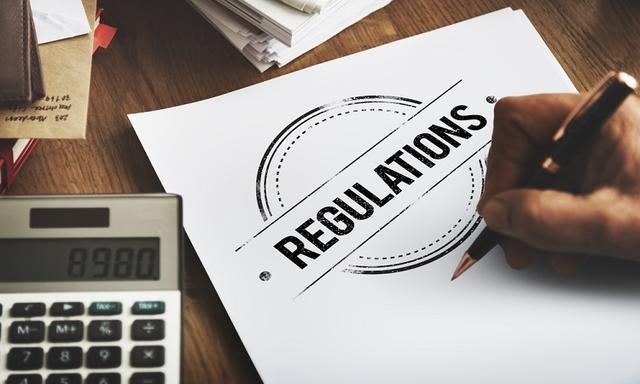Blockchain technology, which underpins cryptocurrencies like Bitcoin and Ethereum, has the potential to revolutionize industries from finance to supply chains, healthcare, and beyond. However, for blockchain to achieve widespread adoption and long-term growth, regulatory policies play a crucial role. Without a clear regulatory framework, blockchain projects face uncertainties that can inhibit innovation, prevent investment, and stifle the technology’s overall development.
In this article, we will explore why regulatory policies are so important for the growth and evolution of the blockchain industry. We will look at the need for regulatory clarity, the benefits of regulation, and how proper oversight can help mitigate risks associated with blockchain technology.
1. Clarity and Legal Framework
1.1 Establishing Clear Guidelines for Innovation
One of the biggest hurdles facing blockchain projects is the lack of clear regulations. Many blockchain developers and companies face uncertainty around how they should design their systems, manage tokens, or even define their business models. With no clear legal framework in place, projects may inadvertently fall foul of the law or face unexpected legal challenges as they scale.
Regulatory policies provide a set of clear guidelines that define what is permissible and what isn’t. This legal clarity allows businesses to innovate without the constant fear of regulatory violations. For example:
- In the U.S., the Securities and Exchange Commission (SEC) provides some clarity on whether a token is classified as a security, which helps crypto projects navigate issues like Initial Coin Offerings (ICOs).
- In Europe, the Markets in Crypto-Assets (MiCA) regulations offer clarity on how digital assets should be classified and managed across the EU.
With regulations in place, companies can better plan their operations, knowing exactly what they are allowed to do, what documentation they need to keep, and how to handle their tokens or cryptocurrencies legally.
1.2 Enabling Cross-Border Operations
Blockchain is a global technology that transcends borders. However, inconsistent regulations across jurisdictions make it difficult for blockchain companies to operate internationally. For instance, a project that is compliant with the laws in one country may not be able to launch in another country due to differences in regulations.
Having an international consensus or harmonized approach to blockchain regulations can eliminate these barriers and create opportunities for businesses to expand more easily across borders. A unified regulatory environment would help blockchain projects:
- Work with international financial institutions.
- Avoid regulatory arbitrage where companies choose to operate in jurisdictions with more lenient laws.
- Promote smoother cross-border payments, supply chain tracking, and other decentralized services that depend on global adoption.
2. Protecting Consumers and Investors
2.1 Preventing Fraud and Misuse
Blockchain and cryptocurrency markets are still relatively new and unregulated in many parts of the world. As a result, the industry has witnessed significant instances of fraud, scams, and hacks, resulting in considerable financial losses for investors and users.
For example, fraudulent ICO (Initial Coin Offering) schemes, where companies raise funds by selling tokens to investors, have raised billions of dollars, only for some companies to disappear or fail to deliver on their promises. Regulatory oversight helps prevent such scams by:
- Imposing KYC/AML (Know Your Customer/Anti-Money Laundering) regulations to ensure that projects operate transparently.
- Ensuring that crypto exchanges are registered and compliant with consumer protection laws.
- Mandating disclosure requirements for blockchain-based financial services, ensuring that investors are fully informed of the risks involved.
By holding blockchain projects accountable and enforcing rules that ensure transparency and trust, regulation protects consumers and reduces the likelihood of fraudulent activities within the space.
2.2 Investor Protection
Investors need to know that their capital is being used responsibly, especially in emerging markets like blockchain and cryptocurrency. Clear regulatory guidelines ensure that investors are given accurate information, appropriate disclosures, and transparent financial practices. This is especially important given the speculative nature of many cryptocurrencies and tokens.
Regulatory policies ensure that:
- Projects are subject to oversight, reducing the likelihood of investors losing money due to fraudulent schemes.
- Projects are held to ethical standards, preventing misleading marketing tactics or price manipulation.
- Investors have access to legal avenues for recovering funds in case of fraud or negligence.
For example, the SEC’s regulation of digital securities offers investors more protection by ensuring that tokenized assets are subject to traditional financial market regulations.
3. Fostering Innovation
3.1 Creating a Stable Environment for Developers
Regulatory clarity not only prevents legal risks but also creates an environment where developers feel safe to innovate. When blockchain developers know that they are operating within a legally defined framework, they are more likely to take risks and develop new solutions, knowing that they won’t face unpredictable legal repercussions down the road.
In the absence of clear regulations, some companies may decide to avoid blockchain technology altogether or leave high-risk activities, such as token launches, untapped. By providing a clear regulatory pathway, authorities can incentivize developers to focus on creating new applications for blockchain.
For example:
- Stablecoins are a rapidly growing segment of the blockchain ecosystem, offering a solution to the volatility typically associated with cryptocurrencies. Clear guidelines regarding the issuance and use of stablecoins can foster more innovation in this space while ensuring that projects comply with existing laws and regulations.
3.2 Encouraging Institutional Investment
The lack of a clear regulatory framework is often cited as one of the primary barriers to institutional investment in blockchain projects. Financial institutions, hedge funds, and other large-scale investors are reluctant to invest in blockchain technology without knowing if they will face legal issues down the line.
Clear regulations enable institutional investors to enter the blockchain space with confidence. Regulatory certainty provides assurance that they will not face unexpected legal risks or regulatory fines in the future. This, in turn, can bring a significant influx of capital into the blockchain space, further accelerating its growth.
For instance, regulatory clarity regarding crypto derivatives, security tokens, and crypto exchange regulations allows institutional investors to participate without fear of backlash.
4. Maintaining Security and Trust
4.1 Establishing Security Standards
One of the primary concerns of blockchain technology is its security. While blockchain itself is inherently secure in many ways, vulnerabilities in the applications and smart contracts built on top of it can leave the network open to attacks. Regulatory policies can set security standards for blockchain projects, requiring companies to adopt certain best practices, such as:
- Implementing strong encryption protocols.
- Regularly auditing smart contracts for bugs or vulnerabilities.
- Creating recovery processes for lost or stolen assets.
By enforcing security standards, regulators can help blockchain projects maintain trust and reliability, ensuring that the technology is used in ways that are safe and secure for all users.

4.2 Building Public Trust
The public’s trust in blockchain technology is often undermined by fears around security, fraud, and transparency. By introducing consumer protection laws and ensuring that blockchain projects follow ethical and legal standards, regulators can build public trust in the technology.
As blockchain projects become more trustworthy and consumers are more confident in using blockchain-based platforms, adoption rates will likely increase, driving further development and growth.
5. The Road Ahead: Striking a Balance
5.1 Regulating Without Stifling Innovation
While regulatory policies are important, there is a fine balance to be struck. Over-regulation could stifle innovation and prevent the technology from achieving its full potential. Therefore, the regulatory approach should be flexible, adaptive, and pro-innovation.
Regulators must find ways to:
- Ensure consumer protection without imposing heavy burdens on developers.
- Promote security standards without impeding the decentralized nature of blockchain.
- Support global cooperation to ensure that the rules are consistent across borders while allowing for innovation in diverse markets.
5.2 The Role of Self-Regulation
In addition to governmental regulations, the blockchain industry may also adopt self-regulatory mechanisms. Industry associations, standards organizations, and blockchain projects themselves can create voluntary frameworks that encourage best practices in areas such as security, privacy, and transparency.
6. Conclusion
Regulatory policies are a key driver of blockchain industry growth. Clear and well-defined regulations provide businesses with the legal certainty they need to innovate and scale, help protect consumers and investors from fraud and misuse, and foster trust in the technology. As blockchain continues to disrupt various industries, regulation will ensure that this innovation is sustainable and that the benefits of the technology are widely distributed.
To fully unlock the potential of blockchain, regulators and industry leaders must work together to create a balanced and adaptable regulatory framework that nurtures innovation, protects stakeholders, and maintains the integrity of the blockchain ecosystem. By doing so, the blockchain industry can mature into a trusted and scalable technology that transforms the global economy.













































